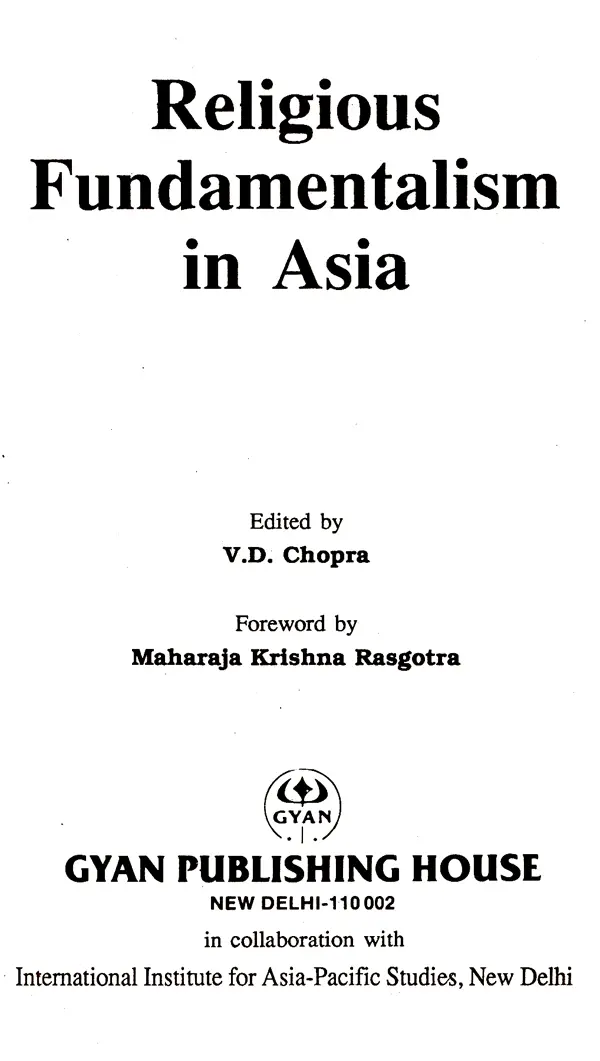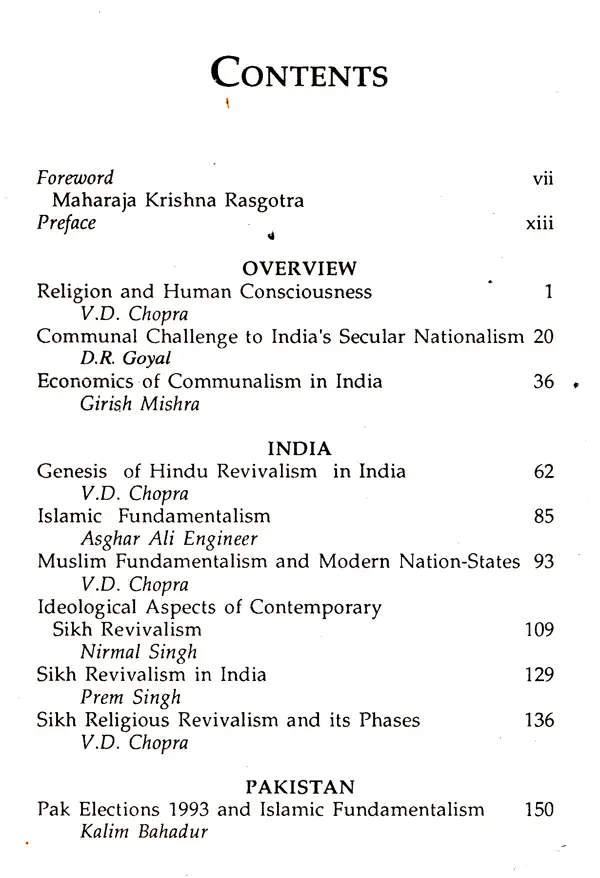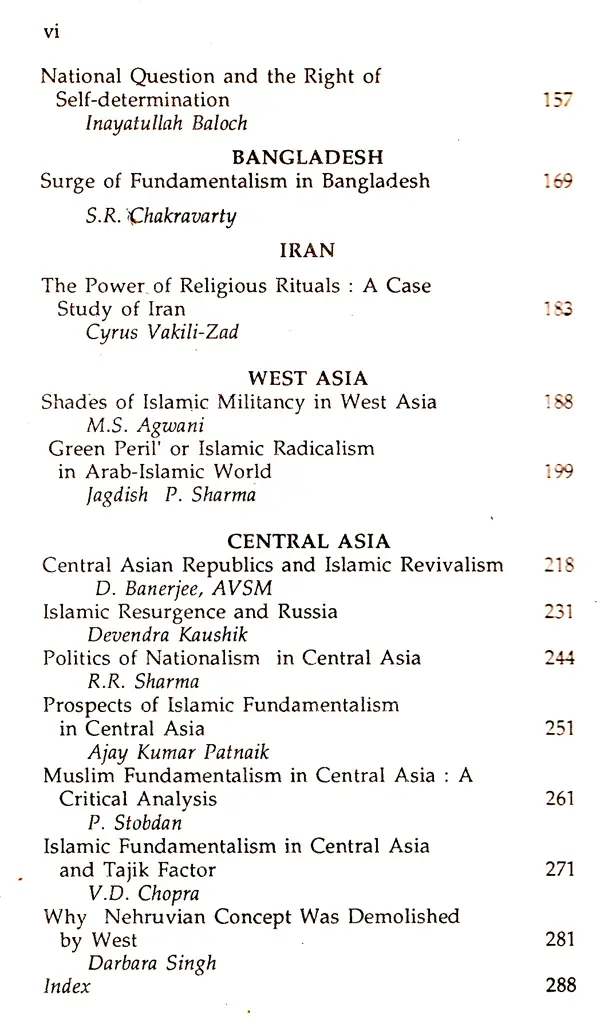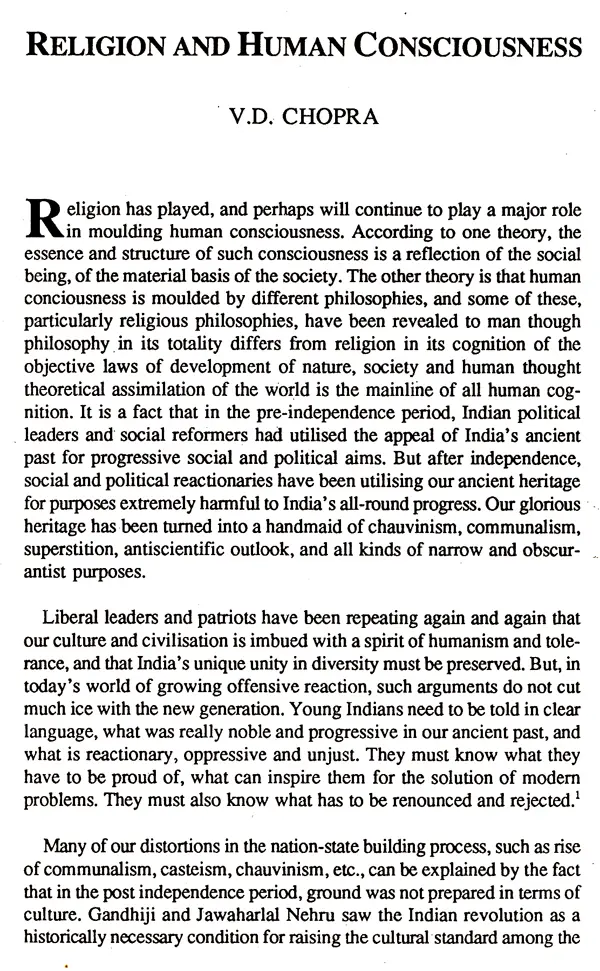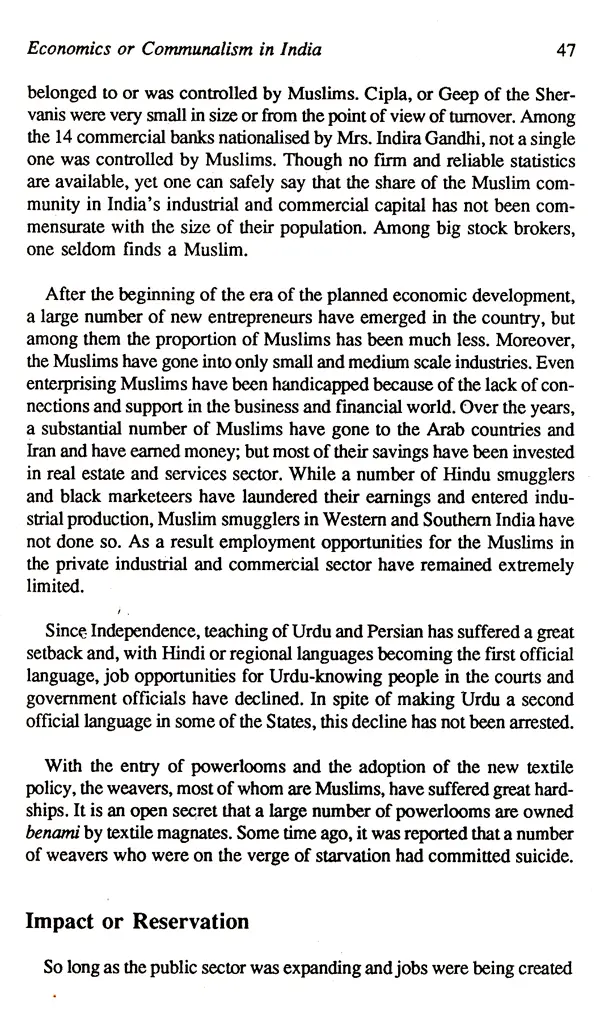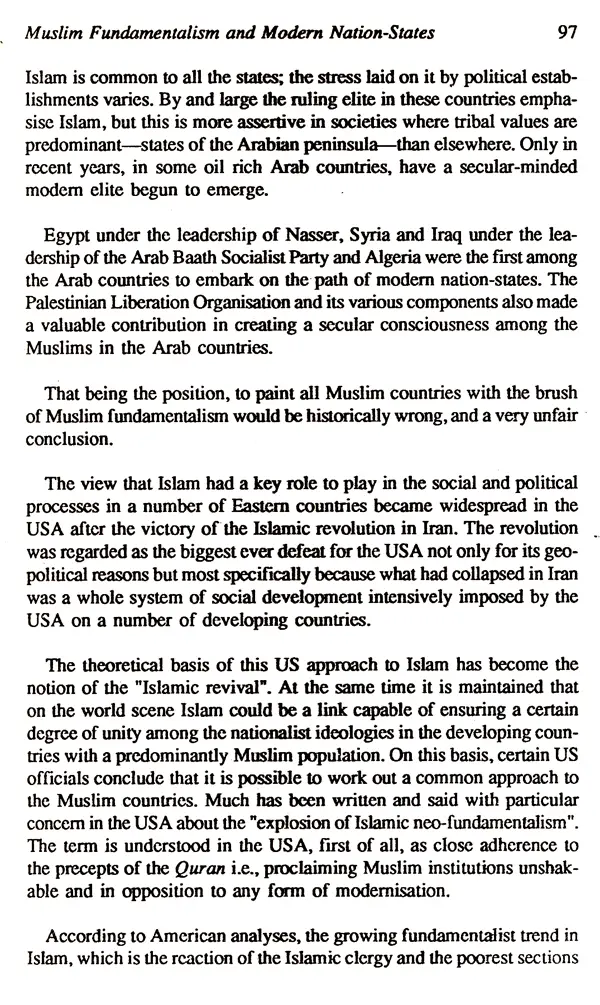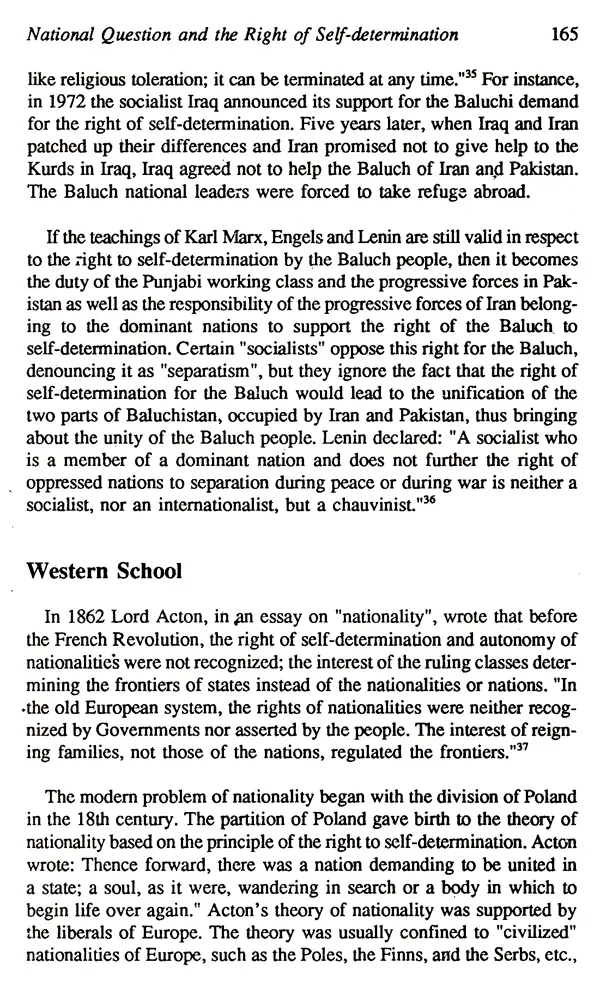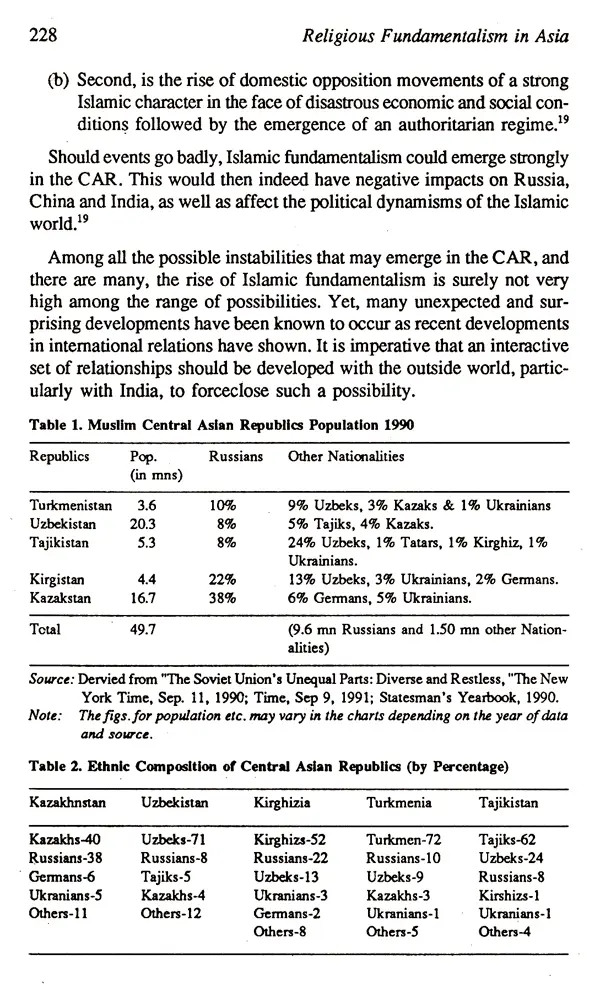
Religious Fundamentalism in Asia
Book Specification
| Item Code: | UAM957 |
| Author: | V. D. Chopra |
| Publisher: | Gyan Publishing House, New Delhi |
| Language: | English |
| Edition: | 1994 |
| ISBN: | 9788121204811 |
| Pages: | 294 |
| Cover: | HARDCOVER |
| Other Details | 8.90 X 5.90 inch |
| Weight | 460 gm |
Book Description
Does this mean that during the last decade of the 20th century we are witnessing a new awakening to the truth various religious bellel systems and their moral and ethical asom? There is an clonens of truth in this.
However, it is also a fact of life that such a phenomenon is not an autonomous development After the Afro-Asian countries liberated themselves from colonialism, they embarked on the path of modern nation-state building in this process they had to liquidate the political-ideological vestiges of the colonial rule, ie, the policy of divide to impera.
During The Cold War period, religious no vivalist leaders and forces were promoted In a large number of countries. In some cases these forces were even armed to organise insurgency.
This, again, does not reflect a total reality It cannot be, for instance, ignored that the most developed modem nation-states too had to face this problem, perhaps with greater intensity than Asia is witnessing today.
In this book an attempt has been made by different scholars and experts to analys this problem in a proper historical perspective. The developing world had started on the process of nation-state building since the end of the World War II, and at the dawn of the era of decolonisation. Therefore, this is for the first time that Indian and foreign scholars have made an attempt to analyse the problem. This attempt may inspire scholars and political leaders to further delve into the subject.
In his career as a journalist, he has covered with distinction the Arab-Israel War for 1973 from Cairo and Beirut, SALT 11 Treaty between the USA and the erstwhile USSR (1979) and the Indo-Pak conflicts of 1965 and 1971.
He has written extensively and edited over a dozen books, including Agony of Punjab, Genesis of Indo-Pal Conflicts on Kashmir, Nuclear Bomb and Pakistan, Paliston and Asian Peace. He was awarded the Nehru Peace Prize for his book india and the Socialist World
The reader will find this work as a source book in at least two important aspects. In the first place, most of the contributors are outstanding scholars who have made rich contribution in their respective disciplines. Secondly, the problem of religious revivalism in all the major countries of Asia has been critically examined.
The contributors specialize in diverse academic disciplines. If there is a strong consistency in their analyses and conclusions, it is neither by design nor chance. Instead, it indicates an important confluence of critical perspective. Though most of the papers included in this book were presented in a seminar organized by the international institute of Asia Pacific Stu dies, they were up-dated and revised on the basis of further discussions.
**Contents and Sample Pages**
